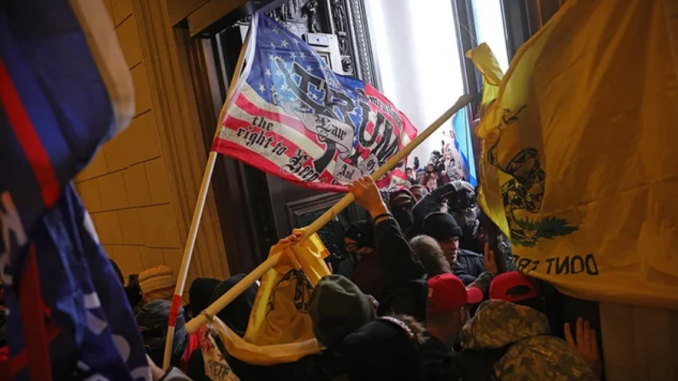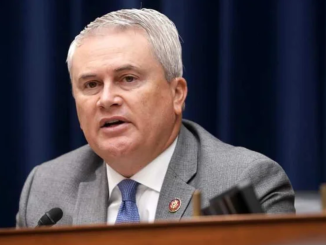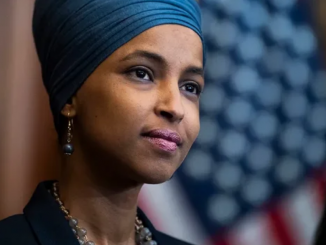
Saturday’s planned rally in support of the Jan. 6 insurrectionists comes at just the wrong time for the Republican Party – or at least for those within the GOP who want to move on from former President Trump.
Trump’s tumultuous final days in office are back in the headlines because of revelations from a forthcoming book by Bob Woodward and Robert Costa of The Washington Post. The House Select Committee on the riot at the Capitol is ramping up its work. And now Saturday’s rally will be one more reminder of the darkest day in recent political history.
This is hardly ideal for those within the GOP who feel they otherwise have an opening to attack President Biden and his party over the chaotic withdrawal from Afghanistan as well as other issues like immigration and inflation.
Everyone in Washington, regardless of political affiliation, has noted that California Gov. Gavin Newsom (D) handily defeated a recall effort on Tuesday by explicitly casting the man most likely to replace him, Larry Elder, as a proxy for Trump.
“Republicans want the midterms to be a referendum on Biden,” GOP strategist Alex Conant told this column. “The Democrats will want it to be about Donald Trump. It’s clear that every Democrat is going to do what Newsom did in California and try to make their own reelection about the former president.”
So far, it looks like the Sept. 18 event at the Capitol could be a fairly small affair.
It has been organized by a former Trump campaign aide, Matt Braynard, but he has asked that attendees not wear pro-Trump clothing or carry Trump signs. Anyone not honoring that request, he tweeted on Tuesday, “will be assumed to be an infiltrator.”
The event has divided the far right. NBC News reported on Wednesday that the rally has drawn dissent on extremist forums, with some participants suggesting it is a “false flag” operation intended to ensnare attendees. The Proud Boys have been critical of it. Its members are not expected to attend.
The rally’s ostensible purpose is to protest the treatment of people who have been arrested for their part in the events of Jan. 6. The basic argument of the organizers is that those people have been targeted for political offenses.
In fact, around 140 police officers were injured on Jan. 6.
According to a Justice Department statement in July, marking the six-month anniversary of the riot, “at least 165 defendants have been charged with assaulting, resisting or impeding officers or employees, including over 50 individuals who have been charged with using a deadly or dangerous weapon or causing serious bodily injury to an officer.”
More than 600 people have been arrested in all.
The Department of Homeland Security expects around 700 people for Saturday’s event.
Although some Republican lawmakers have criticized the treatment of people arrested, none have yet said they will attend the rally. Two of Trump’s most fervent supporters in Congress, Reps. Madison Cawthorn (R-N.C.) and Marjorie Taylor Greene (R-Ga.), have said they do not plan to go.
But the event is sure to draw abundant media attention. Security arrangements are already being beefed up.
Temporary fencing was due to be erected around the Capitol on Wednesday evening.
On Capitol Hill, the House Sergeant at Arms William Walker sent a memo Tuesday evening advising all members of Congress and their staff “to avoid the U.S. Capitol Complex on September 18th.”
Even if the event proves peaceful, some experts on extremism caution that it is part of a larger, troubling picture where the basic tenets of American democracy are being eroded.
Heidi Beirich, co-founder of the Global Project Against Hate and Extremism, said she was “pretty sure” Saturday’s event would be far smaller than Jan. 6, when thousands of people converged on the Capitol.
But, she added, the bigger problem was “the whitewashing of what happened on Jan. 6, trying to recast the people who stormed the Capitol as people practicing civil disobedience or comparing them to Martin Luther King. It’s just ridiculous.”
She added that such claims amounted to “one more prong of attacking our democracy.”
Republicans would prefer not to get drawn into that discussion at all. But the upcoming rally may make it unavoidable.
“Republicans do well when they are talking about issues, and what their ideas and policies are,” said GOP pollster David Winston. Right now, he said, the GOP needed to be focused on, “What’s the solution in terms of improving health care? How do we get the economy really growing? Answering the questions that really matter to people.”
Anything else, he lamented, “doesn’t really move the ball forward.”
But the long shadow cast by the former president hangs over everything.
On Tuesday alone, Trump issued four emailed statements – one alleging voter fraud in California even with polls still open, one hitting Facebook, one complaining about unnamed moderates in the GOP, and one calling Gen. Mark Milley, the chairman of the Joint Chiefs of Staff, a “dumbass.”
The hit on Milley came after revelations in the Woodward and Costa book that Milley had spoken twice to his Chinese counterpart to reassure him that the U.S. would not launch an attack as Trump’s presidency neared its end.
Milley was also reported to have agreed with Speaker Nancy Pelosi’s (D-Calif.) assessment that Trump was “crazy”. The conversation took place on Jan. 8, two days after the Capitol riot.
For the GOP, the road ahead is still blocked by the debris of the recent past.
*story by The Hill


